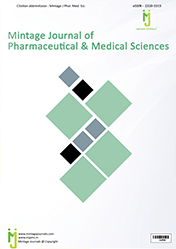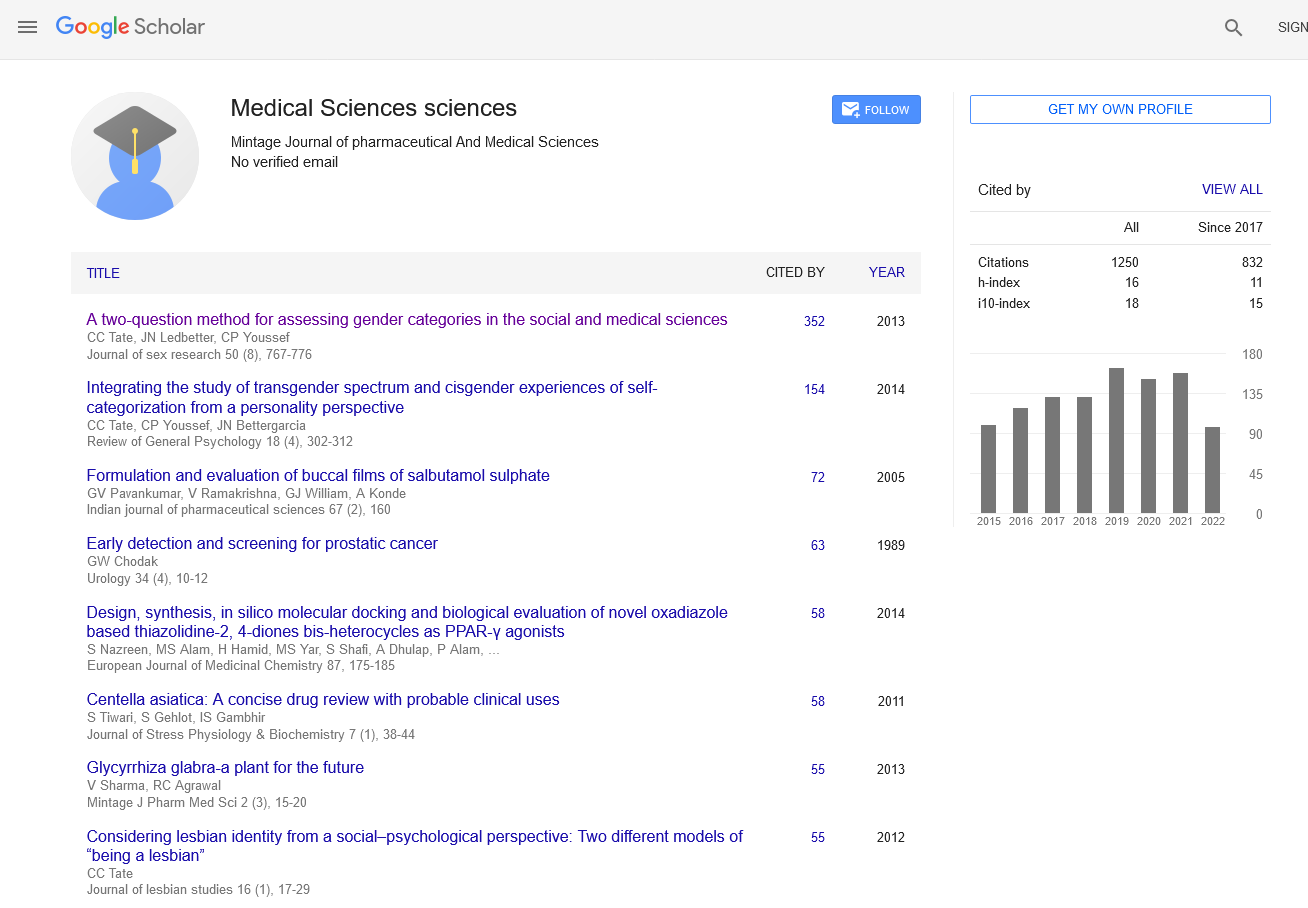VULNERABLE MEDICINAL HERBS: NURTURING NATURE'S HEALING LEGACY
Short Communication - (2023) Volume 12, Issue 2
Abstract
References
Blog | Best Betting Sites in United Kingdom Places to Visit in Egypt Blog | Best Betting Sites in South Africa Places to Visit in Spain Blog | Casino Sites in United Arab Emirates Places to Visit in France Blog | Vehicle Technologies Articles Places to Visit in Greece Blog | Real Estate in Europe Places to Visit in Hong Kong Blog - Find Lawyer in Washington Places to Visit in Croatia Blog - Find Lawyer in Kentucky Places to Visit in Hungary Blog | Real Estate in South Africa Places to Visit in Indonesia Blog | Casino Sites in Russia Places to Visit in Iran Places to Visit in Italy Blog | Places to Visit in USAIntroduction
Herbs have been valued for their therapeutic properties for centuries, providing remedies for various ailments and contributing to traditional healing practices worldwide. However, some of these precious botanical treasures are facing threats due to factors such as overexploitation, habitat destruction, and climate change. As a result, many valuable medicinal herbs have become vulnerable, jeopardizing their existence and the wealth of knowledge they hold. In this article, we delve into the significance of vulnerable medicinal herbs, the challenges they face, and the urgent need for conservation efforts to protect their healing legacy.
Description
The Medicinal herbs, also known as medicinal plants or botanicals, encompass a diverse array of plant species that possess bioactive compounds with medicinal properties. They are used in traditional medicine systems such as Ayurveda, Traditional Chinese Medicine (TCM), and various indigenous healing practices. These herbal remedies have been passed down through generations, embodying cultural heritage and the deep connection between humans and nature [1].
However, the growing demand for herbal remedies, both in traditional and modern medicine, has led to the unsustainable harvesting of medicinal herbs. Overharvesting, often driven by commercial interests, can deplete natural populations of these plants, leading to ecological imbalances and potentially endangering rare species [2].
Habitat loss is another significant threat to vulnerable medicinal herbs. As human activities, such as agriculture, urbanization, and deforestation, encroach upon natural habitats, the delicate ecosystems where these plants thrive are disturbed or destroyed. Many medicinal herbs have specific environmental requirements, making them particularly sensitive to habitat changes [3].
Climate change poses additional challenges for vulnerable medicinal herbs. Altered weather patterns, extreme temperatures, and shifts in precipitation can impact the growth and distribution of plant populations. Some medicinal herbs may struggle to adapt to these changes, leading to reduced population sizes and increased vulnerability to extinction.
The loss of vulnerable medicinal herbs has far-reaching consequences beyond cultural and medicinal aspects. These plants are often crucial components of ecosystems, supporting biodiversity and providing habitat and food for various animal species. Their disappearance can disrupt the delicate balance of ecosystems, leading to cascading effects on other organisms and ecosystem services.
To address the threats facing vulnerable medicinal herbs, conservation efforts are imperative. One approach is the establishment of protected areas and botanical reserves to safeguard the habitats of these plants. Conserving natural habitats ensures that medicinal herbs can continue to grow and thrive in their native environments, protecting their ecological functions and interactions with other species.
Sustainable harvesting practices are equally vital for the preservation of vulnerable medicinal herbs. This involves harvesting herbs in a manner that allows their populations to regenerate naturally without depleting their numbers. Implementing guidelines and regulations for harvesting can help strike a balance between meeting medicinal demands and safeguarding the long-term sustainability of these plants [4].
Conclusion
In conclusion, vulnerable medicinal herbs hold a profound cultural and medicinal legacy that must be protected for future generations. The threats they face from overharvesting, habitat loss, and climate change call for urgent conservation efforts. By implementing sustainable practices, establishing protected areas, and engaging with local communities and traditional knowledge, we can ensure the survival of these precious botanical treasures. Preserving the healing legacy of vulnerable medicinal herbs is not only an investment in our collective health and well-being but also an acknowledgment of the interconnectedness between humans and the natural world.
Acknowledgement
The authors are very thankful and honoured to publish this article in the respective Journal and are also very great full to the reviewers for their positive response to this article publication.
Conflict Of Interest
We have no conflict of interests to disclose and the manuscript has been read and approved by all named authors.
References
- Rathcke B, Lacey EP. Phenological patterns of terrestrial plants. Annu Rev Ecol Syst 1985; 6:16-17.
- Moore LM, Lauenroth WK. Differential effects of temperature and precipitation on early- vs. late-flowering species. Ecosphere 2017; 8:e01819.
- Mulik NG, Bhosale L J. Flowering phenology of the mangroves from the West Cost of Maharashtra. J Bombay Nat Hist Soc 1989; 3:355-339.
- Bareke T. Biology of seed development and germination physiology. Adv Plants Agric Res 2018; 8: 336-346.
Author Info
Ian Weller*Received: 30-May-2023, Manuscript No. mjpms-23-108298; , Pre QC No. mjpms-23-108298(PQ); Editor assigned: 01-Jun-2023, Pre QC No. mjpms-23-108298(PQ); Reviewed: 15-Jun-2023, QC No. mjpms-23-108298; Revised: 20-Jun-2023, Manuscript No. mjpms-23-108298(R); Published: 27-Jun-2023, DOI: 10.4303/mjpms/236050
Copyright: This is an open access article distributed under the terms of the Creative Commons Attribution License, which permits unrestricted use, distribution, and reproduction in any medium, provided the original work is properly cited.

ISSN: 2320-3315
ICV :81.58

